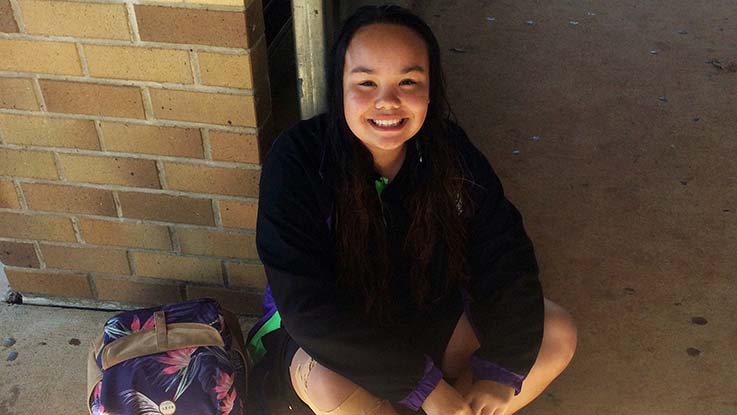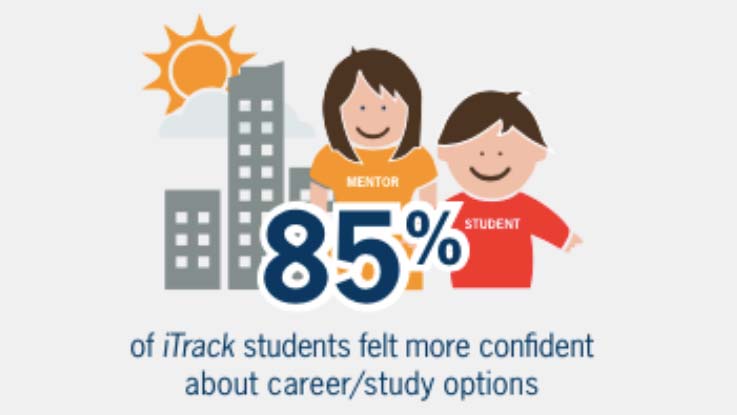
iTrack showed Ashley different ways to achieve her dream

Ashley knew early on that she wanted to go to university. But she was worried that she wouldn’t be able to achieve the entrance mark. Being matched with a mentor through our online iTrack program gave Ashley the confidence and skills to follow her dream.
“My parents never went to university. So it was good to have someone to talk to who had been to university and gone through that whole process. My mentor was able to talk it through with me and help me understand everything,” said Ashley, age 17.
Students from disadvantaged backgrounds often lack access to networks that can connect them to study and career opportunities. Without community and family-based sources of advice, support and information, young people end up being disadvantaged further.1
Through iTrack, we pair students in Years 9 to 11 with volunteer mentors from a professional background who offer guidance about post-school options.
“I got matched with a lady named Mae. She was a lawyer and gave me heaps of tips on planning my time, scheduling and where to look for advice leading towards university.
Beforehand, I wasn’t really certain of the paths I could take but iTrack opened my eyes to the different opportunities that are out there."
Now Ashley is in her final year of school and is studying hard. She is also involved in extra-curricular activities and keeping busy as school captain.

“I found iTrack really useful. My mentor’s advice is coming in handy now that I’m starting to get into my assessment period as well as looking at university courses.”
Ashley feels clearer about her future and can’t wait to be surrounded by like-minded people when she continues her studies after high school.
“I am planning on studying either teaching or an arts degree. I’m looking forward to being able to study something that I’m truly passionate about,” said Ashley.
1. Raposa E Erickson L Hagler M & J Rhodes 2018 How economic disadvantage affects the availability of mentoring relationships during the transition to adulthood Am J Community Psychology 61: 191-203
